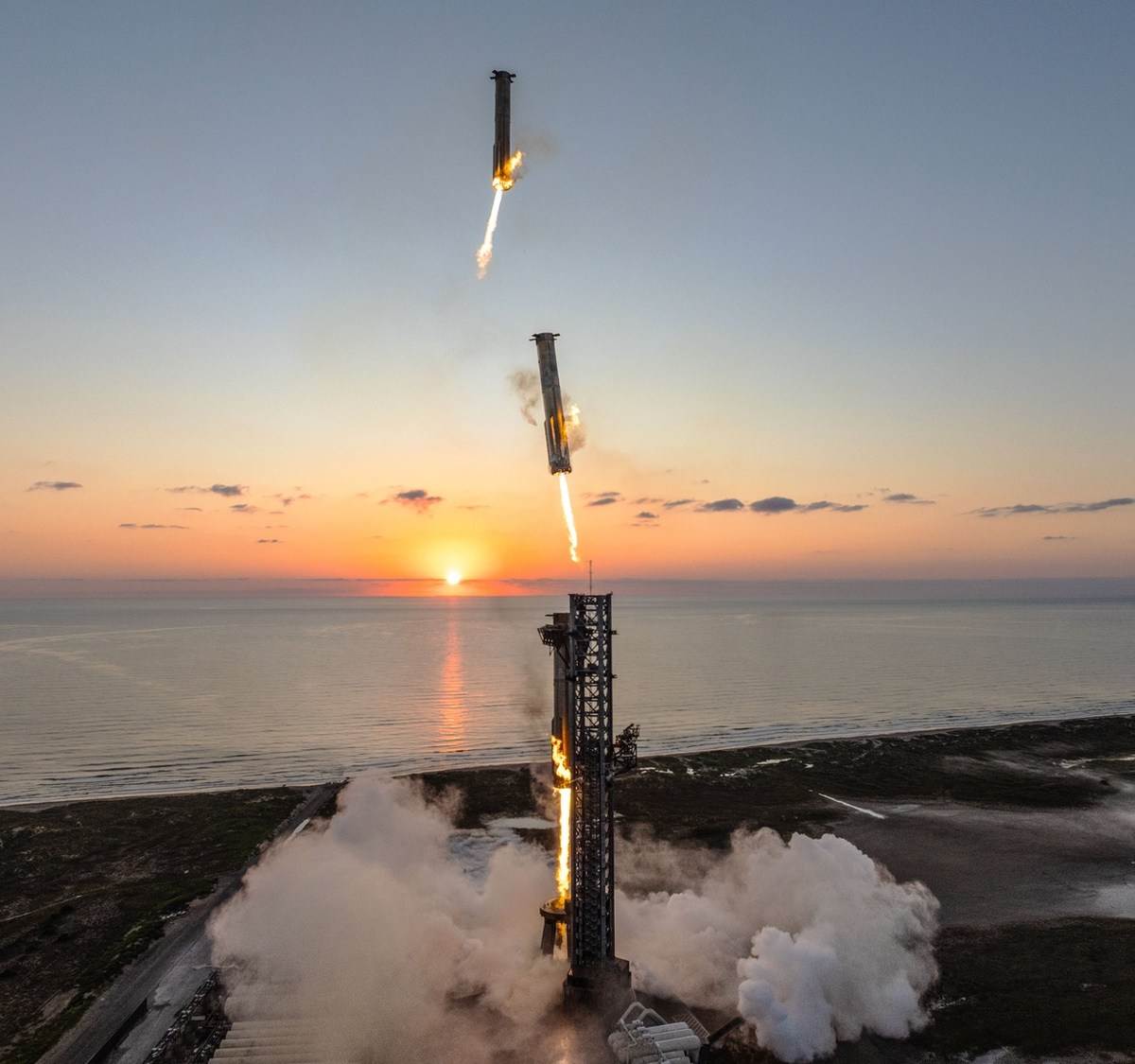SpaceX plans next Starship flight for mid-November
Top Stories Tamfitronics

WASHINGTON — SpaceX has scheduled its next Starship test flight for as soon as Nov. 18, making incremental changes since the previous flight in October.
The company announced Nov. 6 that it was planning the sixth integrated Starship/Super Heavy flight from its Starbase facility at Boca Chica, Texas, for the afternoon of Nov. 18. The announcement coincided with the release of airspace restrictions for the flight attempt by the Federal Aviation Administration.
SpaceX described the upcoming flight as one intended to “expand the envelope on ship and booster capabilities and get closer to bringing reuse of the entire system online.” The flight will follow a similar suborbital profile as the previous flight Oct. 13, including an attempt to return the Super Heavy booster to the launch site for a “catch” by the launch tower.
Among the changes for this flight will be a relight of a Raptor engine on Starship while in flight to demonstrate the ability to perform a deorbit burn on future orbital missions. SpaceX had planned a similar test on the vehicle’s third flight in March, but did not attempt it because of the vehicle’s roll rates.
SpaceX plans to test changes on the thermal protection system on Starship. “The flight test will assess new secondary thermal protection materials and will have entire sections of heat shield tiles removed on either side of the ship in locations being studied for catch-enabling hardware on future vehicles,” the company stated. SpaceX plans to eventually recover Starship using the same launch tower “catch” technique used for the Super heavy booster.
Starship will also fly at a higher angle of attack during its final descent, “purposefully stressing the limits of flap control to gain data on future landing profiles.”
To assist in those reentry observations, SpaceX is changing the launch time for this mission. While previous launches have occurred in the morning at Starbase, this flight is scheduled for launch in a 30-minute window that opens at 5 p.m. Eastern. Doing so will mean Starship’s splashdown will take place in daylight hours in the Indian Ocean, rather than at night as was the case previously.
SpaceX is tweaking the Super Heavy booster as well. The company said it is incorporating additional redundancy in the booster’s propulsion system, increasing structural strength in unspecified “key areas” and decreasing the time to remove propellants from the booster after its return. Engineers “also updated software controls and commit criteria for the booster’s launch and return.”
In a brief audio recording posted by SpaceX Chief Executive Elon Musk Oct. 25, SpaceX officials could be heard saying they came within one second of aborting the previous Super Heavy catch because of a “misconfigured” parameter associated with the Raptor engines in the booster. They noted that the catch attempt included “a whole bunch of new aborts and commit criteria” that they had not been able to fully doublecheck before the launch, adding that they had since reviewed the data from that flight and determined what they needed to change.
If the upcoming flight keeps its current schedule, it will mark the fastest turnaround between Starship/Super Heavy test flights at just over five weeks. One reason SpaceX can move so quickly is that the FAA license issued in October for the fifth flight also allowed SpaceX to perform a sixth flight.
“The SpaceX Starship/Super Heavy Flight 5 license authorization also includes FAA approval of the Flight 6 mission profile,” the agency stated in its announcement of the Flight 5 license Oct. 12. “The FAA determined the changes requested by SpaceX for Flight 6 are within the scope of what has been previously analyzed.” The FAA, at that time, did not disclose what changes SpaceX had requested.

Jeff Foust writes about space policy, commercial space, and related topics for SpaceNews.He earned a Ph.D. in planetary sciences from the Massachusetts Institute of Technology and a bachelor’s degree with honors in geophysics and planetary science…More by Jeff Foust
Discover more from Tamfis
Subscribe to get the latest posts sent to your email.

